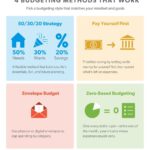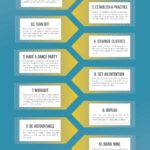Healthy Diet Plans for Weight Loss: Proven Strategies for Sustainable Success
Achieving healthy weight loss requires more than just cutting calories; it involves making sustainable lifestyle changes that nourish the body and mind. By embracing well-researched diet plans, you can create a balanced eating routine that not only helps shed pounds but promotes long-term well-being. In this article, we explore the best evidence-backed diet plans, practical tips for meal planning, and insights to help you avoid common pitfalls on your weight loss journey.
Understanding Weight Loss and Nutrition
Weight loss is not a one-size-fits-all process. While reducing calorie intake is essential, there are numerous factors like metabolism, hormonal balance, and body composition that influence results. The key to long-term success lies in understanding how nutrition supports weight management.
The Science Behind Calories and Weight Loss
At the core of any effective weight loss strategy is the principle of calories in vs. calories out. To lose weight, you need to consume fewer calories than you expend, creating a calorie deficit. However, focusing solely on calorie counting may miss the mark if other aspects of nutrition are neglected. The quality of calories — what you eat — matters just as much.
Actionable Tip:
Rather than obsessing over daily calorie numbers, aim to fill your plate with nutrient-dense foods. Whole grains, lean proteins, healthy fats, and fiber-rich vegetables keep you full for longer and support overall health.
Metabolism’s Role in Weight Loss
Your metabolism — the rate at which your body burns calories — is influenced by several factors, including age, activity level, and muscle mass. Increasing your metabolic rate can make weight loss easier. Regular physical activity, particularly strength training, helps build muscle, which in turn boosts your resting metabolic rate.
Example:
In a 2021 study published in The Journal of Clinical Endocrinology & Metabolism, it was found that participants who engaged in regular resistance training increased their basal metabolic rate, leading to more efficient calorie burning throughout the day.
Creating a Personalized Diet Plan
To find lasting success, your diet plan should be personalized. Here’s how to build a diet that fits your unique needs.
Assessing Your Nutritional Needs
Before embarking on any diet, it’s essential to calculate your Total Daily Energy Expenditure (TDEE) — the number of calories you burn daily. This includes your basal metabolic rate plus the calories burned through physical activity. You can adjust your intake to create a moderate deficit for weight loss, typically between 500–700 calories less than your TDEE.
Step-by-Step:
Use an online TDEE calculator that factors in age, weight, and activity level. Then, subtract a manageable number of calories to ensure steady, sustainable weight loss.
Balancing Macronutrients for Weight Loss
Successful diets emphasize a balance of macronutrients: protein, carbohydrates, and fats. Each plays a vital role in maintaining energy, muscle mass, and overall well-being.
- Protein: Aim for 25-30% of daily calories from protein to support muscle retention during weight loss. Lean meats, fish, legumes, and dairy are excellent choices.
- Carbohydrates: Focus on complex carbs like whole grains, fruits, and vegetables, which provide lasting energy and are high in fiber.
- Fats: Healthy fats are necessary for hormone production and cell function. Prioritize unsaturated fats found in nuts, seeds, avocados, and olive oil.
Best Diet Plans for Weight Loss
While the internet is flooded with countless diet trends, not all are sustainable or healthy. Below are some of the most research-backed and health-promoting diets:
The Mediterranean Diet
The Mediterranean diet consistently ranks among the healthiest in the world. Centered on whole foods like fruits, vegetables, whole grains, and heart-healthy fats, it is well-known for reducing the risk of cardiovascular diseases and promoting weight loss.
- What makes it effective: This diet is rich in antioxidants, anti-inflammatory compounds, and healthy fats, which not only help with weight loss but support longevity. A 2020 study in the British Journal of Nutrition revealed that the Mediterranean diet led to significant fat loss over 12 months compared to low-fat diets.
The DASH Diet
Originally designed to lower high blood pressure, the DASH diet (Dietary Approaches to Stop Hypertension) is another balanced plan ideal for weight loss. It emphasizes fruits, vegetables, lean proteins, and low-fat dairy while minimizing salt and unhealthy fats.
- Why it works: The DASH diet encourages eating nutrient-rich, whole foods that naturally limit caloric intake and sodium, which can lead to water retention and bloating.
Intermittent Fasting
Intermittent fasting involves alternating between periods of eating and fasting, commonly using methods like the 16:8 or 5:2 schedules. Many people find this approach simplifies weight loss by limiting the time available to consume calories.
- Pros: For some, intermittent fasting helps regulate calorie intake and improve insulin sensitivity. According to a 2022 review published in Obesity Reviews, intermittent fasting can lead to moderate weight loss and improvements in metabolic health.
- Cons: Not everyone benefits from fasting, as it may lead to overeating during non-fasting periods or heightened food obsession.
Essential Tips for Healthy Weight Loss
Embarking on a weight loss journey doesn’t mean you have to forgo enjoyment. Here are some practical tips to help you stay on track without feeling deprived:
Portion Control
Practicing portion control helps prevent overeating without the need to count every calorie. By serving meals on smaller plates or measuring out portions, you can enjoy your favorite foods in moderation.
Example:
A study from Appetite in 2020 found that participants who used smaller plates consumed fewer calories without feeling deprived.
Mindful Eating
Adopting a mindful eating approach encourages you to listen to your body’s hunger cues, which helps avoid overeating. Pay attention to your food’s texture, flavors, and how it makes you feel, rather than eating mindlessly in front of a screen.
Common Weight Loss Mistakes to Avoid
While there are numerous ways to lose weight, some practices are counterproductive and can stall progress. Avoid these common mistakes:
Crash Dieting
Crash diets may promise rapid weight loss, but they come at the expense of muscle mass and overall health. In extreme cases, they can slow metabolism and lead to quick weight regain once normal eating resumes.
Skipping Meals
Skipping meals may seem like an easy way to cut calories, but it often backfires by increasing hunger later in the day, leading to overeating.
Solution:
Instead of skipping meals, focus on balanced, nutrient-dense snacks like nuts, yogurt, or fruit to keep hunger at bay.
Frequently Asked Questions
1. What are the most effective healthy diet plans for weight loss?
The most effective healthy diet plans for weight loss include the Mediterranean diet, the DASH diet, and intermittent fasting. These diets focus on whole, nutrient-dense foods, balanced macronutrients, and sustainable eating habits that support long-term weight management.
2. How can I personalize healthy diet plans for weight loss?
To personalize healthy diet plans for weight loss, assess your Total Daily Energy Expenditure (TDEE), adjust calorie intake, and balance macronutrients (proteins, carbs, and fats). It’s important to tailor the plan based on your age, weight, activity level, and personal preferences for sustainable success.
3. Do healthy diet plans for weight loss include carbohydrates?
Yes, healthy diet plans for weight loss can and should include carbohydrates, especially complex carbs like whole grains, fruits, and vegetables. These carbs provide essential energy, fiber, and nutrients while keeping you full longer, aiding in weight management.
4. How do healthy diet plans for weight loss support long-term success?
Healthy diet plans for weight loss focus on balanced, whole foods and sustainable eating patterns, which promote gradual weight loss and maintenance. By avoiding extreme restrictions and focusing on nutrient density, these plans help develop habits that can be maintained for life.
5. Are healthy diet plans for weight loss safe for everyone?
Generally, healthy diet plans for weight loss are safe for most people, but individuals with medical conditions should consult a healthcare professional. Plans that focus on balanced nutrition from whole foods are typically safe and sustainable, but extreme calorie restrictions should be avoided.
6. Can healthy diet plans for weight loss work without exercise?
Yes, healthy diet plans for weight loss can be effective even without exercise. However, incorporating physical activity can accelerate fat loss, improve muscle tone, and enhance overall health. A combination of diet and exercise is ideal for optimal results and long-term success.
7. How do healthy diet plans for weight loss address cravings?
Healthy diet plans for weight loss often include nutrient-dense foods that help control hunger and reduce cravings. By incorporating foods rich in fiber, protein, and healthy fats, these plans can keep you fuller for longer, making it easier to manage cravings and avoid overeating.
8. How fast can I expect results from healthy diet plans for weight loss?
The rate of weight loss with healthy diet plans for weight loss typically ranges from 1 to 2 pounds per week. This steady pace is sustainable and supports long-term success, as opposed to crash diets that often lead to quick weight regain.
9. Are cheat meals allowed in healthy diet plans for weight loss?
Yes, healthy diet plans for weight loss can include occasional cheat meals. Allowing for controlled indulgences can help maintain balance, prevent feelings of deprivation, and promote long-term adherence to your diet without derailing progress.
10. What foods should I avoid in healthy diet plans for weight loss?
In healthy diet plans for weight loss, it’s best to avoid processed foods, sugary snacks, and trans fats. These foods are calorie-dense but lack essential nutrients, which can hinder your weight loss efforts. Focus on whole, unprocessed foods like fruits, vegetables, lean proteins, and whole grains for better results.
Conclusion: Key Takeaways for Successful Weight Loss
To achieve sustainable weight loss, focus on creating a personalized plan that emphasizes whole, nutrient-dense foods, balanced portions, and enjoyable physical activity. Fad diets may offer quick results, but gradual and steady progress ensures you can maintain a healthy weight for the long term. By integrating healthy eating habits with an active lifestyle, you’ll set yourself up for lasting success.
The path to weight loss is one of patience and balance. By following a personalized, sustainable diet plan that includes whole, nutrient-dense foods, you can achieve your weight loss goals without sacrificing enjoyment. For more ideas on how to enhance your natural beauty through nutrition and self-care, check out this guide to natural beauty. As always, consult with a healthcare professional before making significant changes to your diet, and remember that the best results come from gradual, healthy progress that you can maintain for life.
Harvard T.H. Chan School of Public Health – Healthy Weight – This article offers insights into how different diets and nutritional strategies impact weight loss and overall health, supported by research and expert recommendations.







